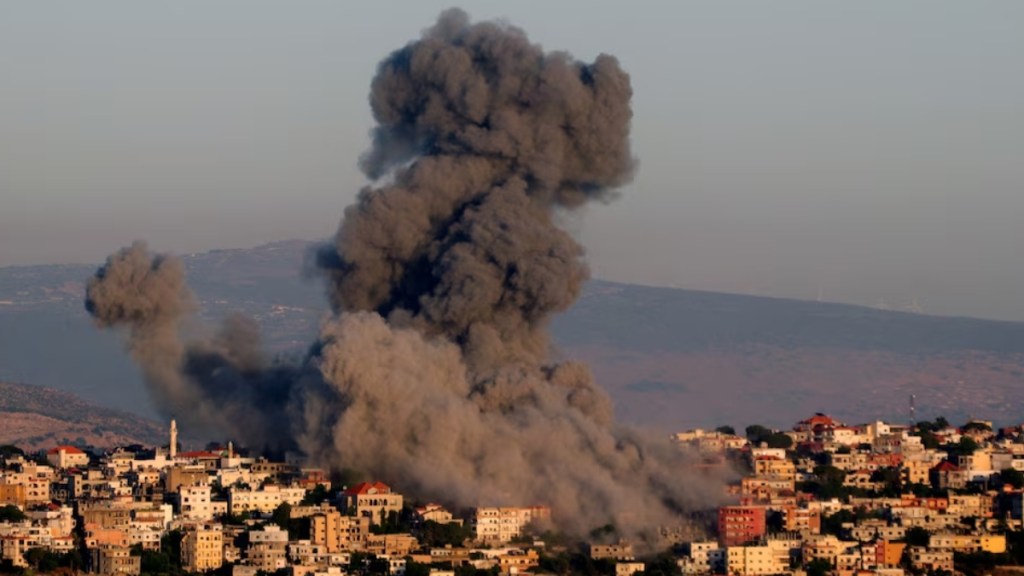Israel has launched targeted raids into Lebanon, specifically to strike Hezbollah strongholds along the border. The incursions, led by Israeli commando and paratroop units, were described as “limited” and aimed at eliminating threats posed by the Iran-backed Hezbollah group.
The situation became even more volatile as Hezbollah responded by firing a barrage of missiles into Israel, with reports indicating attacks on strategic locations, including the Mossad spy agency near Tel Aviv. The exchange of hostilities marks a significant escalation in the ongoing conflict between the two adversaries.
Israeli security officials emphasized that the ground raids into Lebanon were restricted in scope and did not result in direct clashes with Hezbollah fighters. Despite conflicting reports from Hezbollah officials denying Israeli forces’ entry into Lebanon, tensions remain high as both sides continue to engage in provocative actions.
Hezbollah’s use of a new missile, dubbed “Fadi 4,” against Israeli military positions in Tel Aviv underscores the group’s growing capabilities and aggressive stance towards its longtime foe. Additionally, targeting the Mossad intelligence agency signals Hezbollah’s intent to retaliate against perceived provocations and threats.
The Israeli military has justified its actions as necessary measures to counter Hezbollah’s military build-up and safeguard its borders. Israeli spokespersons have reiterated that the operations are not directed at the Lebanese people but aim to neutralize imminent threats posed by Hezbollah’s presence near the border.
As the conflict intensifies, residents in southern Lebanon are fleeing their homes, seeking refuge from the escalating violence. The Lebanese government, recognising the gravity of the situation, has appealed for international aid to address the humanitarian crisis resulting from the heightened hostilities.
The volatile situation in the region has raised concerns about broader implications, with Iran’s allies, including Hezbollah and Yemen’s Houthi movement, expressing solidarity and engaging in coordinated attacks against Israeli targets. The possibility of regional escalation and involvement of external powers adds a layer of complexity to an already volatile situation.
As the conflict continues to evolve, the international community faces the challenge of preventing further escalation and facilitating a peaceful resolution to the longstanding tensions between Israel and Hezbollah. The recent developments underscore the fragile balance in the region and the urgent need for diplomatic efforts to de-escalate the situation before it spirals into a full-blown conflict.
(With agency inputs)
